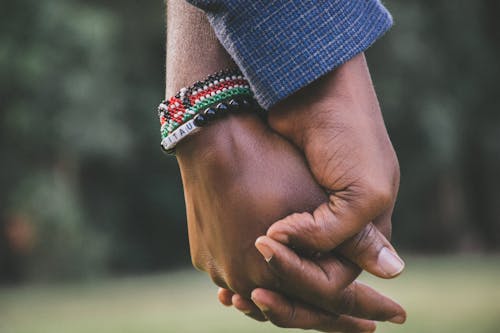
Human beings are inherently social creatures, and the quality of our relationships significantly impacts our overall well-being and happiness. Cultivating meaningful relationships involves more than merely maintaining social connections; it requires a conscious effort to build deep, fulfilling bonds with others. This essay explores the essential components of fostering meaningful relationships, including understanding relationship dynamics, developing key interpersonal skills, overcoming challenges, and nurturing lasting connections.
Understanding the Foundations of Meaningful Relationships
Defining Meaningful Relationships
Characteristics of Meaningful Relationships
- Emotional Connection: Meaningful relationships are marked by a deep emotional bond where individuals feel understood, valued, and supported. This connection fosters trust and intimacy.
- Mutual Respect: Respect is fundamental to meaningful relationships. It involves valuing each other’s opinions, boundaries, and individuality.
- Authenticity: Authenticity involves being genuine and true to oneself. In meaningful relationships, individuals can be themselves without fear of judgment or rejection.
Types of Relationships
Family Relationships
- Foundational Bonds: Family relationships often form the basis of our early social experiences and provide a sense of identity and belonging.
- Nurturing Family Ties: Building and maintaining strong family relationships involves open communication, empathy, and support.
Friendships
Friendship Dynamics
- Shared Interests and Values: Friendships are often based on shared interests, values, and experiences. These commonalities help forge strong connections and mutual understanding.
- Supportive Interactions: True friendships provide emotional support, encouragement, and companionship.
Romantic Relationships
Building Romantic Bonds
- Compatibility and Growth: Romantic relationships thrive on compatibility and a willingness to grow together. Mutual goals, values, and emotional support are key components.
- Intimacy and Communication: Open and honest communication fosters intimacy and helps navigate challenges in romantic relationships.
Developing Key Interpersonal Skills
Effective Communication
Active Listening
- Engagement and Attention: Active listening involves fully engaging with the speaker, maintaining eye contact, and showing genuine interest. This helps build trust and understanding.
- Reflective Responses: Use reflective responses to validate the speaker’s feelings and provide feedback that demonstrates empathy and comprehension.
Expressing Yourself Clearly
- Honest Communication: Communicate openly and honestly about your thoughts, feelings, and needs. Avoiding ambiguity helps prevent misunderstandings and fosters clearer connections.
- Non-Verbal Cues: Pay attention to non-verbal communication, such as body language, facial expressions, and tone of voice, as these cues contribute to the overall message.
Empathy and Understanding
Practicing Empathy
- Perspective-Taking: Empathy involves understanding and sharing the feelings of others. Practice perspective-taking by considering how others might feel in different situations.
- Emotional Support: Offer emotional support and validation, especially during challenging times. Acknowledge others’ feelings and provide comfort and encouragement.
Building Trust
Consistency and Reliability
- Dependability: Being consistent and reliable helps build trust in relationships. Follow through on commitments and be dependable in both actions and words.
- Transparency: Foster trust by being transparent and honest in your interactions. Avoid deception or withholding important information.
Respect and Boundaries
Setting and Respecting Boundaries
- Personal Boundaries: Establish and respect personal boundaries to ensure that relationships remain healthy and respectful. Communicate your boundaries clearly and be attentive to others’ boundaries.
- Mutual Respect: Show respect for each other’s autonomy, opinions, and space. Healthy boundaries contribute to balanced and fulfilling relationships.
Overcoming Challenges in Relationships
Addressing Conflicts
Conflict Resolution
- Open Dialogue: Address conflicts through open and respectful dialogue. Focus on resolving issues rather than assigning blame or engaging in arguments.
- Compromise and Negotiation: Seek compromise and negotiate solutions that accommodate both parties’ needs and perspectives. Approach conflicts with a willingness to find common ground.
Managing Expectations
Realistic Expectations
- Understanding Limitations: Recognize that no relationship is perfect and that individuals have limitations. Set realistic expectations and appreciate each person’s strengths and weaknesses.
- Avoiding Perfectionism: Avoid expecting perfection from yourself or others. Embrace imperfections and focus on the positive aspects of the relationship.
Dealing with Change
Adaptability and Growth
- Embracing Change: Relationships evolve over time, and adaptability is crucial for maintaining meaningful connections. Embrace change as an opportunity for growth and development.
- Supporting Growth: Support each other’s personal growth and changes. Encourage and celebrate milestones and achievements.
Nurturing and Sustaining Meaningful Relationships
Investing Time and Effort
Quality Time
- Shared Activities: Spend quality time together engaging in activities that both parties enjoy. Shared experiences strengthen bonds and create lasting memories.
- Regular Interaction: Maintain regular interaction through consistent communication, whether in person or through other means. Regular contact helps sustain connections.
Expressing Appreciation
Gratitude and Acknowledgment
- Showing Appreciation: Express gratitude and appreciation for the people in your life. Acknowledge their contributions and the positive impact they have on you.
- Acts of Kindness: Perform acts of kindness to demonstrate your appreciation and strengthen the relationship. Small gestures can have a significant impact.
Continuous Growth
Personal Development
- Self-Improvement: Invest in personal development to enhance your interpersonal skills and contribute positively to your relationships. Self-awareness and growth benefit both you and your relationships.
- Learning and Adaptation: Continuously learn and adapt to improve your relationship dynamics. Seek feedback and be open to making changes that enhance the quality of your connections.
Building a Supportive Social Network
Expanding Connections
Diverse Relationships
- Varied Social Circles: Build a diverse social network by connecting with people from different backgrounds, interests, and experiences. A varied network enriches your social life and provides different perspectives.
- Community Involvement: Engage in community activities and organizations to meet new people and build meaningful connections.
Support Systems
Finding Support
- Supportive Relationships: Cultivate relationships with individuals who provide emotional support and encouragement. Surround yourself with people who uplift and motivate you.
- Offering Support: Be a source of support for others by being present, offering help, and providing encouragement. Reciprocal support strengthens relationships.
Case Studies and Success Stories
Case Study 1: The Reconnected Siblings
Two siblings who had drifted apart reconnected by:
- Initiating Communication: Reaching out to each other and initiating open and honest conversations about their feelings and experiences.
- Shared Activities: Engaging in shared activities that fostered bonding and created new memories.
Case Study 2: The Strengthened Friendship
A friendship that faced challenges was strengthened by:
- Conflict Resolution: Addressing and resolving conflicts through open dialogue and compromise.
- Renewed Commitment: Recommitting to the friendship by spending quality time together and expressing appreciation.
The Future of Relationship Building
Emerging Trends
Digital Relationships
- Online Connections: The rise of digital communication tools offers new opportunities for building and maintaining relationships. Embrace technology to connect with others while maintaining authenticity.
- Virtual Communities: Participate in virtual communities and social networks to expand your social circle and build meaningful connections.
Holistic Approaches
Integrated Relationship Practices
- Mindful Relationships: Incorporate mindfulness practices into your relationships to enhance presence, empathy, and connection.
- Balanced Social Life: Strive for a balanced social life that includes a mix of in-person and digital interactions, as well as a diverse range of relationships.

Cultivating meaningful relationships involves a conscious and intentional approach to building and maintaining deep, fulfilling connections with others. By understanding the foundations of meaningful relationships, developing key interpersonal skills, addressing challenges, and nurturing connections, you can enhance the quality of your social life and overall well-being. Investing time, expressing appreciation, and embracing continuous growth contribute to sustaining meaningful relationships that enrich your life and foster a sense of belonging and fulfillment. As you navigate the complexities of modern relationships, maintaining a mindful and adaptive approach will help you build lasting and meaningful connections.









